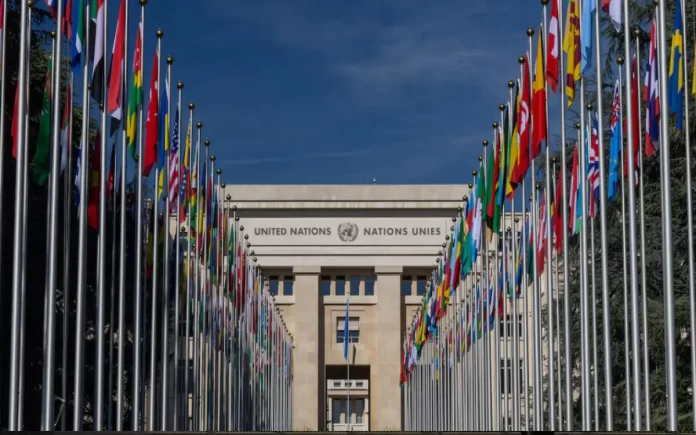UNITED NATIONS, New York: Members of the UN Security Council encountered a deadlock on Thursday regarding the Palestinian bid for full UN membership, signalling a probable move towards a formal council vote. Despite being an observer since 2012, Palestinians have long pursued full UN membership, seeking recognition of Palestinian statehood.
Approval for UN membership necessitates Security Council endorsement, where the US, a staunch ally of Israel, holds veto power, followed by General Assembly endorsement.
Following Israel’s Gaza offensive, Palestinians reactivated a 2011 UN membership application last week, prompting the Security Council to initiate a formal review process. However, the ad hoc committee, comprising council member states, failed to attain consensus during a closed-door session on Thursday, according to Maltese Ambassador Vanessa Frazier, the council’s rotating president for April.
Although two-thirds of the members favored full membership, the committee could not proceed without consensus. Consequently, any Security Council member can now propose a resolution for a vote on the matter.
Diplomatic sources suggest a potential vote on April 18, likely initiated by Algeria, representing Arab nations on the Council. Despite the possibility of securing the required nine out of 15 votes, observers anticipate a US veto.
The United States asserts that the United Nations is not the appropriate venue for determining Palestinian statehood, advocating instead for a bilateral agreement between Israel and the Palestinians.
Palestinian UN envoy Riyad Mansour reiterated the desire for recognition, stating, “All we ask for is to take our rightful place among the community of nations.”
The recent Gaza conflict, ignited by Hamas’s attack on Israel on October 7, resulted in significant casualties, with Israeli figures reporting 1,170 deaths, primarily civilians. In response, Israel’s offensive in Gaza, according to the Hamas-run territory’s health ministry, claimed the lives of at least 33,545 individuals, predominantly women and children.



